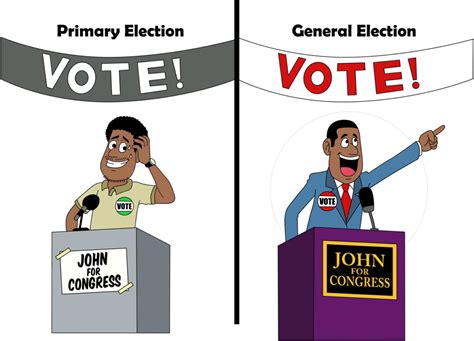Introduction
General Election is a crucial component in the democratic process, where citizens actively participate in electing their representatives for various political offices. In the United States, general elections are held at the federal, state, and local levels, shaping the political landscape and determining the course of government policies. This comprehensive guide delves deep into the concept of general elections, exploring their significance, types, procedures, and impact within the framework of AP Government.

Understanding General Elections
General elections are held periodically to fill elective political positions, enabling citizens to exercise their democratic rights. These elections provide an opportunity for voters to cast their ballots for candidates who represent their political views, values, and aspirations. Unlike primary elections, which determine which candidates will represent a specific party in the general election, general elections allow voters to choose from a broader range of candidates representing various political affiliations.
Types of General Elections
Federal General Elections
At the federal level, general elections are held every two years for the House of Representatives and every four years for the presidency and the Senate. These elections have a profound impact on the composition of the U.S. government and the direction of national policy.
State and Local General Elections
General elections also occur at the state and local levels, determining who holds offices such as governors, mayors, state legislators, and county officials. These elections shape state and local policies, affecting issues like education, healthcare, infrastructure, and local governance.
Procedures for General Elections
1. Voter Registration: Prior to participating in a general election, citizens must register to vote. Registration typically involves providing basic information, such as name, address, and date of birth, and demonstrating eligibility to vote based on residency and age requirements.
2. Campaigning: In the run-up to the general election, candidates actively campaign to gain support from voters. They engage in a variety of activities, including public rallies, debates, media appearances, and advertising campaigns.
3. Voting: On Election Day, registered voters cast their ballots at designated polling stations, which are usually set up in public places like schools, churches, and community centers. Voters mark their ballots with their preferred candidates and submit them for counting.
4. Counting and Certification: After Election Day, ballots are carefully counted and tallied to determine the winners of the election. In some cases, recounts or audits are conducted to ensure the accuracy and integrity of the results. The official election results are then certified by electoral boards or designated officials.
Impact of General Elections
Political Representation: General Elections** play a vital role in ensuring that governments are representative of the people they serve. By electing their representatives, citizens have a direct say in shaping the policies that affect their lives.
Policy Direction:** The outcome of general elections significantly influences the direction of government policies. The elected officials represent the views of their constituents and work towards enacting laws and implementing programs that align with those views.
Accountability:** General elections serve as a mechanism for holding elected officials accountable to the public. By periodic elections, voters can express their satisfaction or dissatisfaction with the performance of their representatives and can choose to replace them if necessary.
Civic Participation: General Elections** promote civic participation and foster a sense of shared responsibility in the democratic process. The act of voting empowers citizens and gives them a tangible sense of involvement in shaping their future.
Conclusion
General Elections are a cornerstone of democratic societies, providing citizens with the opportunity to elect their representatives, shape government policies, and hold elected officials accountable. By actively participating in general elections, citizens play a vital role in determining the course of their government and safeguarding their democratic rights. Understanding the concept and procedures of general elections is essential for informed political engagement and active citizenship.
